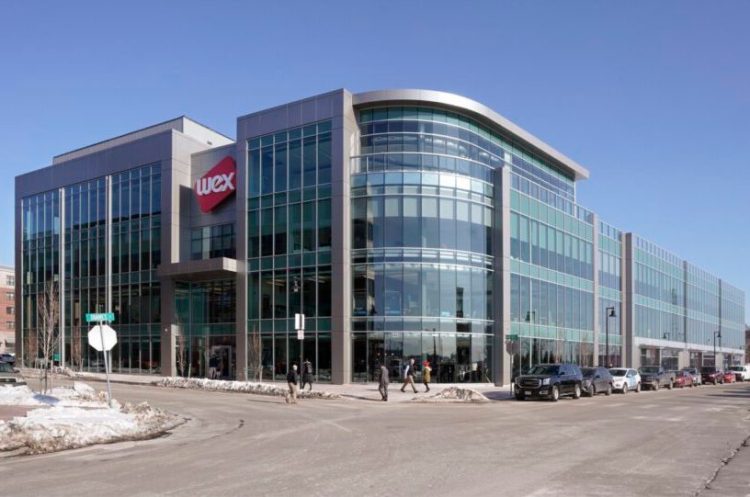Wex Inc., a Portland fuel payment processing service, announced Friday it was severing its business relationship with a subsidiary of Russian-based Lukoil.
While hundreds of U.S. companies have cut business ties or pulled out of Russia to protest the invasion of Ukraine in February, Wex had continued its 22-year relationship with Lukoil North America, the Press Herald reported this week.
Wex had been mostly silent on the matter, saying it could not discuss its business dealings with the Russian company. But on Friday Wex said it was discontinuing its relationship with Lukoil.
“As the war has continued, with no foreseeable resolution in sight, we re-evaluated our relationship with LukOil, and have decided to discontinue this relationship,” the company said in a statement posted on social media Friday. “We want to go beyond what is required of us to ensure that none of our operations contribute, in any way, to aiding or supporting (Vladimir) Putin’s aggressive actions.”
A Wex spokesperson, Robert Gould, said Friday that the company would provide no further information and did not answer emailed questions about what led to the decision.
The statement also said that Wex had complied with all sanctions against Russia and “is not doing business in Russia, and does not have any employees or office locations in Russia.”
Lukoil North America is registered in Delaware and headquartered in Moorestown, New Jersey. According to industry sources, it gets the oil for its filling stations from East Coast refineries that are not importing Russian oil, so doing business with it presumably doesn’t formally violate U.S. sanctions. In a statement Lukoil North America said it “reinvests its profits into operating, maintaining, and investing in capital projects at its network of stations in the United States.”
Sanctions expert Steven Tian, director of research for the Yale School of Management’s Chief Executive Leadership Institute, told the Press Herald this week that doing any business with a Russian company – even without a physical presence in Russia – would help Putin retain power.
When told Friday of Wex’s decision to sever ties with Lukoil, Tian said that some companies who have stopped doing business with Russian firms or in Russia have only done so because of mounting public pressure, while others took action soon after the invasion without much prompting. Tian’s organization has tracked more than 500 companies that have pulled out of Russia or ended Russian partnerships.
“There was very little top-down coordination or overt government pressure for businesses to fully divest from Russia. So local communities have really played a catalytic role in pushing companies to re-evaluate and sometimes end Russian operations and take the strong moral stand,” Tian wrote in an email Friday. “Many times, it’s employees within the companies themselves. We’ve been flooded from tips from internal company whistleblowers who feel strongly their own companies should exit Russian operations.”
John Forrer, director of the Institute of Corporate Responsibility at the George Washington University School of Business, told the Press Herald this week that he thought Wex’s relationship to Lukoil occupied a gray area. Since U.S. financial industry sanctions likely make it impossible for Lukoil North America to transfer funds to its Russian parent company, any revenues generated as a result of a partnership with Wex presumably aren’t helping Russia’s war effort in any way, he said.
Wex had been managing Lukoil’s branded fuel card systems for its gas stations on the East Coast. The relationship allowed Wex to earn between $3 and $20 per month per fuel card via service revenue, late fees and finance charges. There are 1,300 Lukoil gas stations on the East Coast, including nineteen in Maine.
Since Russia’s invasion, Pennsylvanians have boycotted Lukoil-branded filling stations and the City Council in Newark, New Jersey, voted unanimously to revoke their license to operate entirely. The #BoycottLukoil hashtag has surged on social media in those states.
Since the war in Ukraine began, hundreds of U.S. and international companies have pulled out of Russia or severed business ties with Russian companies, including Exxon, BP, Shell, McDonalds, Nike, Adidas, Apple, Microsoft, Visa, Mastercard, Discover and Nestle. At least 1,100 civilians are believed to have been killed in Ukraine so far and some 10 million Ukrainians have fled their homes.
Another of Maine’s best-known companies, Idexx Laboratories, is continuing to operate in Russia as the invasion of Ukraine enters its second month, the Press Herald reported this week.
Idexx, a veterinary medicine company based in Westbrook, had 18 staffers in its Moscow office before the invasion, according to a job ad description that has since been removed from the company’s website. The office provided in-person sales, technical support, customer service and installation services to Russian customers, most of them presumably veterinary clinics using Idexx’s diagnostic equipment on dogs, cats and other pets. Before the invasion, the company also was hiring personnel to expand its water testing business in the country.
In a written statement the company had said it was helping veterinarians provide essential care to pets.
“This is even more important in a time of crisis,” the statement said. “While we have limited operations in Russia, we are focusing on supporting existing veterinary customers so that they can offer vital healthcare services to pets while complying with all applicable sanctions.”
Idexx did not respond to an email Friday asking if its position on its Russian business operation had changed.
Staff Writer Colin Woodard contributed to this story.
Send questions/comments to the editors.




Comments are no longer available on this story